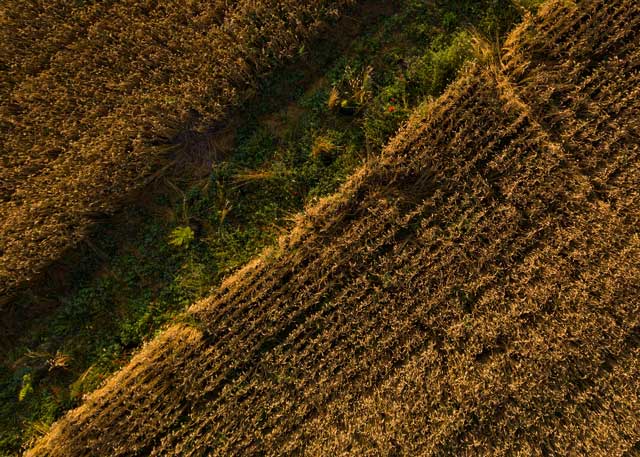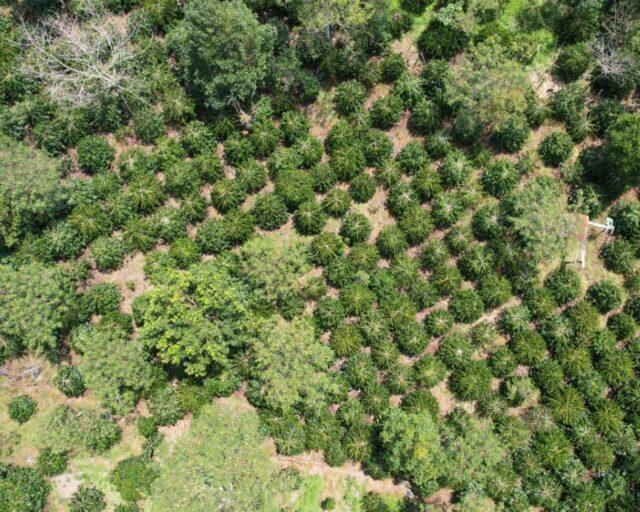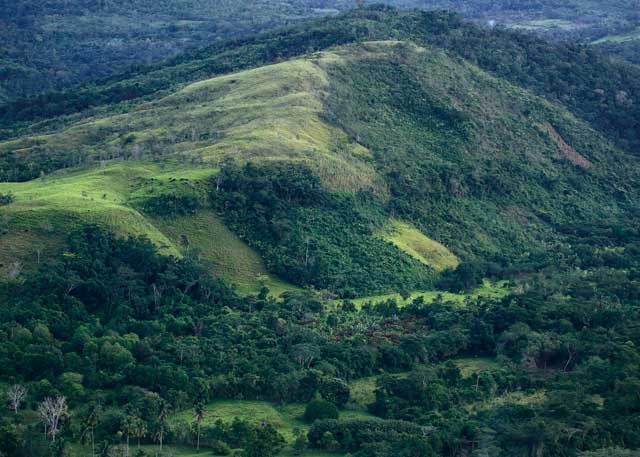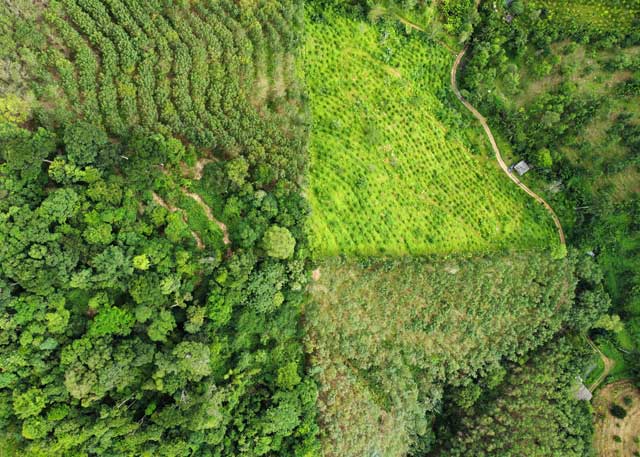As part of its Cocoa Life Program, Mondelēz International has partnered with PUR to develop a 3-year pilot agroforestry program (2020-2022) in Southeast Sulawesi — planting trees on cocoa farms across the province, in support of its goal towards no deforestation on Cocoa Life farms.
News & Stories
Cocoa Agroforestry Case Study
Mondelēz International partners with PUR to plant trees on cocoa farms across Southeast Sulawesi, in support of its goal towards no deforestation.
Increasing resilience and environmental awareness
The three main goals of this project are to:
- Increase the resilience of cocoa production by helping to restore, improve and regulate ecosystem services at the parcel and landscape levels, and help make local farms more sustainable.
- Provide new resources for farmers by helping to diversify production at the parcel level, with timber and non-timber forest products.
- Enhance environmental awareness among communities and farmers for future farming practices, recognize the environmental impact of agriculture and help protect the remaining forest.
Over the past three years, PUR has recruited and trained ~2,000 farmers to implement agroforestry projects in cocoa production while distributing nearly 60,000 trees in Southeast Sulawesi.
Agroforestry is the integration of trees into farming systems. Unlike full-sun fields, agroforestry can help preserve productive ecosystems and adapt to climate change. The trees provide multiple services to help improve the quality and long-term sustainability of production.
Helping to empower local women through agroforestry
Women have a major role in cocoa production in Kolaka and East Kolaka. They often manage households and are highly involved in the decision-making processes of family and farming — especially related to finances and expenses. This is why women in Southeast Sulawesi have been enthusiastic about participating in agroforestry projects: to promote environmental restoration for future generations and help diversify their family’s income.
In most communities in Kolaka and East Kolaka, women have been actively choosing the tree species to be planted on their farms.
“We usually know better than our husbands about the money and economic potential of trees. Therefore, women hold the power to decide the best types of trees to be planted.” – Hijerah from Konaweha, Kolaka
Hijerah chose to plant fruit trees such as Durian Montong (Durio Zibenthinus spp2), Manggis (Garcinia Mangostana), Pala (Myristica Fragrans) and timber trees such as Jati Putih (Gmelina Arborea).
In this program, their contribution goes further than just planting trees — they help by clearing weeds and watering the seedlings on schedule. After joining the program and attending training sessions, women quickly recognize the importance of planting and looking after trees, which benefits soil quality and the surrounding environment. This newfound awareness helps to increase their motivation to take care of all the trees on their farm.
“From the training, I learned that planting additional trees will help the soil and the environment. I now realize that with shading trees, the farm will not get too warm, so the cocoa trees will be healthier too.”– Ida from Lalokateba Village, East Kolaka
On a long-term basis, women are tasked with managing the economic potential of fruit and timber trees on their farms. Out of ~2,000 registered farmers in Southeast Sulawesi, ~450 are women — who work closely with other participants, communally sharing responsibility for the success of these incredible agroforestry projects.
Related Posts
Mondelēz International partners with PUR to plant trees on cocoa farms across Southeast Sulawesi, in support of its goal towards no deforestation.

Key Global Trends for Nature-Based Goals and Action in 2023

Kopi Lestari, Indonesia

Jubilación Segura, Peru
